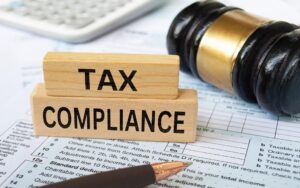The introduction of virtual assets has been a paradigm shift in the world of finance, and nations are being forced to control these innovations. However, the UAE is very much interested in supervising virtual asset companies in their financial strategy.
This article attempts to find out who regulates virtual assets business companies in the UAE and which are the important bodies in this case, namely the Virtual Assets Regulatory Authority (VARA) and the Dubai International Financial Centre (DIFC).
UAE’s Perspective On Virtual Assets Industry And Their Framework
Both cryptocurrency and blockchain have been hot topics for innovation and technological advancement in the UAE. Now, with this expansion, it is necessary that fine UAE crypto regulations regulate not just the investors but also the financial system. The regulations of virtual assets in the UAE are intended to form a proper business environment for companies and individuals.
Virtual Assets Regulatory Authority (VARA)
Through its establishment in 2022, VARA marked a turning point in international dealing in the regulation of virtual assets. With the global economy increasingly turning into cryptocurrencies, blockchain technology, and other digital assets, regulators in various nations have had to lean on one another to work out how best to regulate the infant ecosystem. In response, Dubai has taken the lead in the sense that it has set up its own regulatory body for command space.
As a first-of-its-kind regulatory body, VARA works with Virtual Asset Service Providers (VASPs) in Dubai to help them offer a secure and efficient platform for their use. This praises the United Arab Emirates as a pioneer of digital finance and innovation.
Objectives of Virtual Assets Regulatory Authority (VARA)
- Create a strong digital economy via new, different ideas and means.
- Frame broad rules for UAE crypto regulation that serve investor protection.
- Do not allow the ones that traded in the virtual assets market to be manipulated.
- Make certain the laws and regulations are harmonious with the best practices and standards that are conducive to promoting investors.
- Measures need to be introduced to secure and build trust and confidence in the virtual assets regulations in the UAE.
- Create an environment that will allow the development and progress of law on virtual assets in the UAE.
Dubai International Financial Centre (DIFC)
Dubai International Financial Centre (DIFC) is the principal financial services supervisory body concerned with virtual assets. The DIFC’s legal and regulatory framework is strong, encouraging the practices of economic organizations and fintech companies. The DIFC Authority is responsible for compliance with UAE laws and regulations on virtual assets.
DIFC’s Role in Virtual Assets Regulation
- Financial Services Regulation: DIFC Authority in ensuring that companies operating in DIFC jurisdiction are observed to adhere to relevant laws.
- Legal Framework: Under the specific laws for virtual assets, virtual asset companies could continue to operate and attract foreign investments in the DIFC.
- Innovative Ecosystem: The DIFC is striving to create and foster innovation in the virtual assets sector by creating a culture of innovation. It’s a great place for virtual asset companies to be.
The UAE’s desirability as a location for virtual assets benefits from DIFC’s strategic location and makes VARA’s work in regulating such activity possible.
UAE Crypto Regulations
The crypto regulations UAE are simple, as their goal is to formulate legal frameworks concerning virtual assets, ensuring the companies are whistle-free and uphold integrity in their dealings. This fosters trust and conviction of action between an investor and the public at large.
Key Regulations Impacting Virtual Assets
- Anti-Money Laundering (AML): It is important that virtual asset companies observe the appropriate laws and implement effective Anti-Money laundering strategies to prevent them from being exploited as instruments in executing unlawful actions.
- Data Protection: Data protection laws that virtual asset companies must follow include guaranteeing that customers’ information is safe and, in the current state of affairs, dealt with responsibly.
- Licensing Requirements: VARA or the DIFC licenses require all virtual asset service providers to obtain a license, and no virtual asset service provider shall operate within the UAE unless registered with VARA or the DIFC.
The regulations that the UAE is implementing are meant to achieve a balance between stimulating innovation while protecting consumers, the regulators and stability in the financial sector.
Importance of Compliance for Virtual Assets Companies
Compliance with the UAE’s virtual assets regulations is not just a legal obligation for UAE’s virtual assets companies; it’s an important part of their business strategy. Being compliant puts the company in a good position in a competitive market.
Benefits of Compliance
Compliance brings benefits such as an increase in credibility (both with potential investors and partners), as companies that are subject to VARA and DIFC regulations are likely to be found more credible.
The added advantage is Risk mitigation, which involves following regulatory standards to identify and control Virtual Asset risks related to the company’s businesses and clients.
Additionally, in terms of gaining access to local and around-the-world markets, these compliant companies will be more productive and likewise can easily grow and grow their clients.
Why Choose Recordac for Virtual Asset Services?
Selecting a trustworthy service provider such as Recordac would be highly advantageous to virtual asset companies. Recordac offers regulatory compliance consulting, assisting businesses with the intricacies of UAE crypto regulation, license support to ease application processes, and risk management measures to overcome the challenges present in the virtual asset ecosystem.
Final Thoughts
Knowing who regulates cryptocurrency entities in the UAE is crucial for firms that wish to operate in this evolving environment. The UAE is well placed to regulate and promote the virtual assets sector and take advantage of this significant unmet demand with the creation of the Virtual Assets Regulatory Authority (VARA) and the supportive framework of the Dubai International Financial Centre (DIFC).
For firms looking to operate in this space, working together with a well-reputed provider, Recordac, can assist in compliance and help them succeed in the fast-growing cryptocurrency market in the UAE for years to come.












